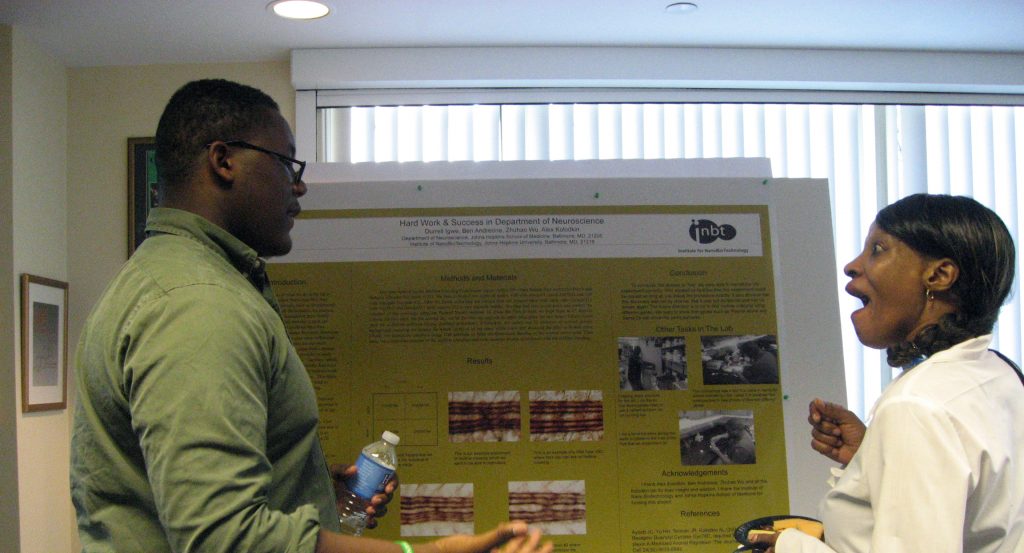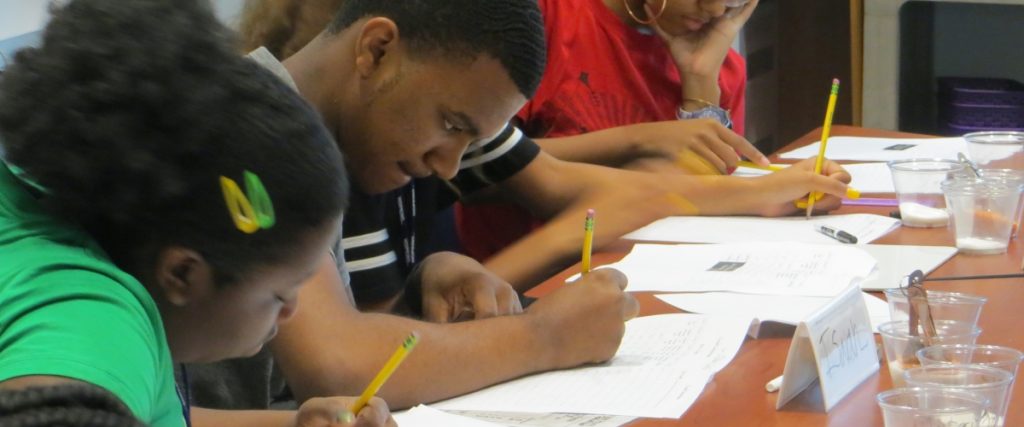Scholars spend 30% of their time working on academic fortification. Scholars take structured classes in writing, mathematics, laboratory science, and bioethics. We have documented an average of two years of academic growth in scholars’ writing ability in a single summer. In mathematics, scholars pursue an individualized curriculum where they work with a doctoral student mentor. They are pushed in any topic ranging from algebra to advanced calculus. For science, scholars take a 10-session course geared to make them become fluent in basic laboratory science. Scholars learn about basic laboratory chemistry, the Central Dogma of biology, proteins and nucleic acids, cells, and microscopy. Finally, the scholars study modern bioethics and read the Immortal Life of Henrietta Lacks by Rebecca Skloot. This book is fanstastic for all readers as it is simultaneously a lesson in bioethics, a Johns Hopkins story, a Baltimore story, and a race relations story beginning in the 1950s. Upon completion of the reading, scholars take a mini-field trip where they meet with Barbara Migeon (pictured) who was a contemporary of Drs. George Guy and Victor McKusick, both of whom were key figures in the HeLa story. Scholars then meet with a modern bioethicist, Dr. Debra Matthews, to discuss a modern view of informed consent.

